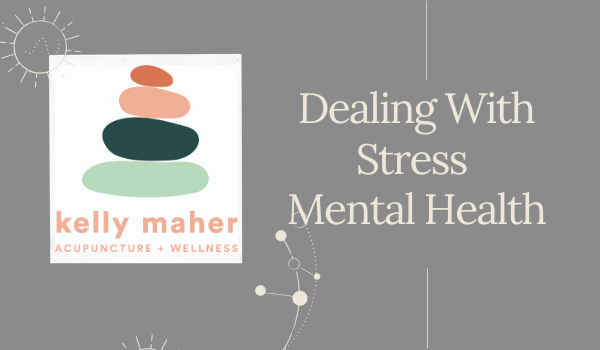5 Tips for Managing Stress as a Lawyer
Stress is present in all professions. But, it is endemic in the legal profession. And unchecked stress breads depression and anxiety.
A recent study in LexisNexis’ The Bellwether Report 2019 says two thirds of lawyers experience “high levels of stress despite the confident ‘business as usual’ industry outlook.” And according to a study by the Hazelden Betty Ford Foundation and the American Bar Association Commission on Lawyer Assistance Programs, 28 percent of U.S. lawyers experience some level of depression and 19 percent display symptoms of anxiety.
How are lawyers dealing with these experiences? How are people seeking to counter the stressors in their lives?
We’ve brainstormed some tips on how lawyers can better manage their stress and implement more mentally healthy practices into their workdays.
Identify the Scope and Scale of Your Stressors
In order to respond to the negative stress, you need to know when it is impacting you.
Take some time to reflect on notable experiences of stress in the previous week or month. Note what you were doing and where, or what you were anticipating and dreading in the near future. Note the impact those stressors have on you, and compare them to experiences that have either been unstressful or experiences of positive stress. Take special note of how you recall feeling in those stressful situations, and for how long.
This personal inventory can help you understand what causes you stress, how stress is impacting you, and how you are responding to it. Once you know that, you can develop practices to manage it.
Be Open with Others … But Known When Is Too Open
Stress is particularly common in the workplace, and in a law firm, you’re probably not the only one who’s stressed, anxious, or even depressed. So it is important to know that it is okay--even vital--to be transparent with co-workers, friends, and loved ones about your mental health.
Being transparent with others about how stress is impacting you can create opportunities for solidarity, camaraderie, and support. That can make a great difference since stress, depression, and anxiety produce feelings of isolation from those around you.
It may be challenging to start a conversation about your mental health with people you trust, love, and admire. In general, we don’t like to admit when we’re struggling, and we often feel guilty when we ask for help and support from others. But finding help often means being vulnerable, and it’s worth it to find support.
Personal transparency like this can go a step further. It can be integrated into practices at your law firm via individual check-ins at staff meetings.
The P.I.E.S check-in method is particularly beneficial. Each person gives a check-in about themselves physically, intellectually, emotionally, and spiritually--and thus comprehensively--at the start of an important meeting. Hence the acronym P.I.E.S. A check-in like this creates an office environment that is open, intentional, and caring, which is of great benefit for those whose mental health could use some support.
Integrate De-stressors into Your Workday
If stress brings you down, you need to find ways to bring yourself up. Appropriate the Marie Kondo method for this tip and ask yourself what brings you joy, or what helps you decompress?
We’ve brainstormed some ways to de-stress during the workday that won’t much detract from the work you need to accomplish:
- Get out of the office during your lunch break, especially if the weather is pleasant. A change of scenery can refresh your mind.
- Work in a different space, or with a co-worker. Being with someone as you both complete work in the same space can be more engaging than sitting alone in your office with the door shut.
- Arrange your daily schedule so that meetings break up what would be long periods of solitude working through a case, producing documents and invoices and sending follow-ups to potential clients.
- Take a few deep breaths from time to time. Try meditating or reflecting on the progress you’ve made on a case. Reflection and affirmations can go a long way in diminishing stressors and anxieties.
Contact a Lawyer Assistance Program
Stress shouldn’t just be managed personally. Often times, it can be. Sometimes, it can’t.
Sometimes stress is so great that it can feel overwhelming. That is why Lawyer Assistance Programs exist. They respond to lawyers’ real need for mental health support.
The American Bar Association’s website has a comprehensive directory of Lawyer Assistance Programs by state. If you're reticent to contact one of these programs but also know you need help, know that their services are professional, private, and confidential.
Take Time Off
This may seem like a non-option for you. But it is still an option. You may just need to adjust what you consider ‘time off’.
Sabbaticals are common in ministry and academia, where long hours, intensive research, and extensive emotional energy are required. Lawyers experience those same requirements as well. The result can be stress, anxiety, and burn out.
Time off doesn’t need to be a sabbatical, though. It can be taking that family vacation which has been repeatedly pushed off. It can be something as simple as not working over the weekend.
Taking time off wouldn’t be an end-all solution. It would certainly provide a personal reset, but it’s a step toward managing stress. It’s one of several steps toward managing stress.
For more information about stress and mental health in the legal profession, contact your local bar association or review the American Bar Association’s exhaustive resources on the matter.


